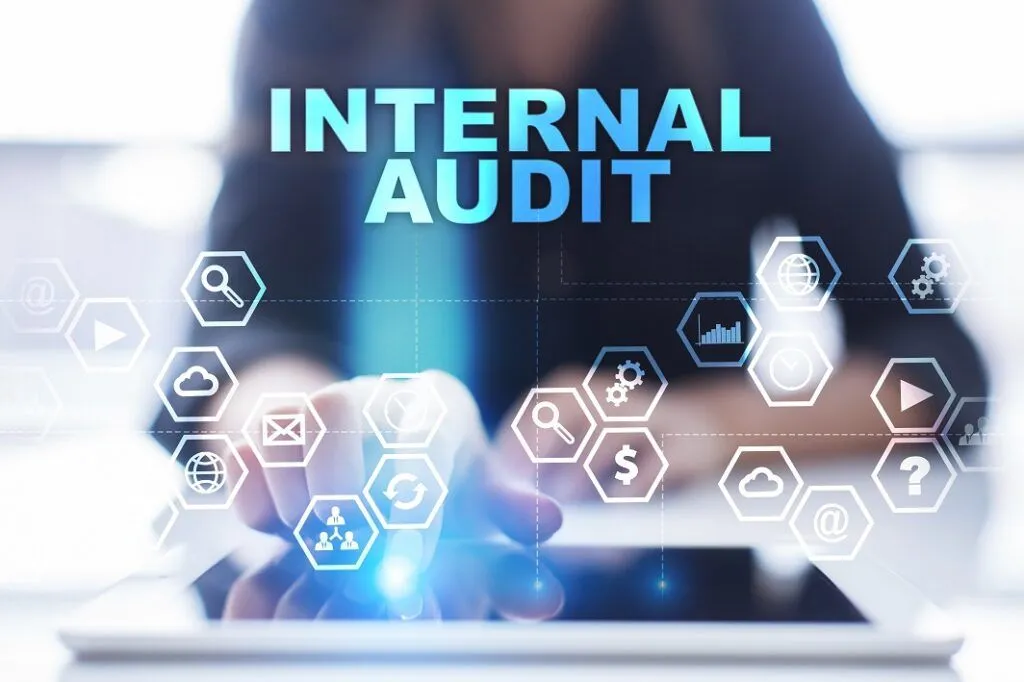
INTERNAL AUDIT
And Associates
Definition & Scope of internal Audit:
- Internal Audit provides independent assurance on the effectiveness of internal controls and risk management processes to enhance governance and achieve organizational objectives.
- As per SA 610 “Using the Work of an Internal Auditor” The internal auditing is not confined to financial transactions only, but it’s also include review of operational activities, underlying internal controls, compliance to applicable laws and regulations.
Applicability of Provisions of Internal Audit:
- As per section 138 of the Companies Act, 2013, following class of companies shall be required to appoint an internal auditor,
- every LISTED company,
- every UNLISTED PUBLIC company having-
(i) Paid up share capital (PUC) of 50cr or more during the preceding financial year
or
(ii) Turnover of 200cr or more during the preceding financial year
or
(iii) Outstanding loans or borrowings from banks or public financial institutions exceeding 100cr or more at any point of time during the preceding financial year
or
(iv) Outstanding deposits of 25cr or more at any point of time during the preceding financial year
and
- every PRIVATE company having
(i) Turnover of 200cr or more during the preceding financial year
or
(ii) Outstanding loans or borrowings from banks or public financial institutions exceeding 100cr or more at any point of time during the preceding financial year
Note: If existing company gets covered under above criteria then comply all requirements within 6 Months of commencement of such applicability.
Who can be Appointed as an Internal Auditor? :
- As per section 138, the internal auditor shall either be,
a chartered accountant (whether engaged in the practice or not)
Or
a cost accountant (whether engaged in the practice or not)
Or
such other professional as may be decided by the Board
- The internal auditor may or may not be an employee of the company.
- To be effective, the internal auditor must be part of the management and not merely as an assistant. Furthermore, he or she must have the authority to investigate every organizational activity to meet the objectives and scope of the internal audit.
PERFORMING INTERNAL AUDIT ENGAGEMENT:
Step 1 – Obtain knowledge of the Business and its Environment
- conduct meetings with key stakeholders
- obtain understanding of various business documents
- obtain understanding of the Information Technology, various applications and ERP system
- obtain understanding of the various laws and regulations that are applicable
Step 2 – Perform Audit Planning
- Audit scope must be approved by Audit Committee and Board of Directors.
- conduct the opening meeting with key stakeholders before start of audit
Step 3 – Gather required information
- obtain the required information and perform checks to ensure correctness and integrity of information received.
- advance intimation should be made for any interim information
Step 4 – Perform audit checks
- perform analytical procedures to identify key trends and
- adequate evidences must be collected and stores.
- must prepare detailed listed of the Identified audit issues and controls gaps.
- audit work papers needs to be ensured.
Step 5 – Reporting of Internal Audit Issues
- must prepare a draft report of Internal Audit issues.
- Management Action Plan & follow up.
- thereafter circulate Final Report and presentation his findings.
RELATIONSHIP BETWEEN INTERNAL AND EXTERNAL AUDITORS :
| INTERNAL AUDIT
|
EXTERNAL AUDIT
|
| 1. PERFORMED BY
Internal audit is performed by an independent internal auditing function within the organization or by external body.
|
It is an audit function performed by the independent body which is not a part of the organization.
|
| 2. EXAMINATION
The Internal auditor examines the adequacy of operational controls of the organisation.
|
The External auditor examines the Accuracy and Validity of Financial Statements.
|
| 3. APPOINTMENT
The Internal auditor is appointed by the Audit Committee or Board of Directors.
|
The External auditor is appointed by the Members(Shareholders).
|
| 4. USERS OF REPORT
Generally, internal audit report is used by top Management and referred by statutory auditor.
|
The user of external audit report is Stakeholders.
|
| 6. REPORTING
Internal Audit Report provides weakness in internal controls and effectiveness of the operational activities.
|
The opinion is provided on the truthfulness and fairness of the financial statement of the company.
|
| 7. STATUS OF AUDITOR
The Internal auditor could be an employee of the company.
|
The External auditor is mandatorily not an employee of the company.
|
